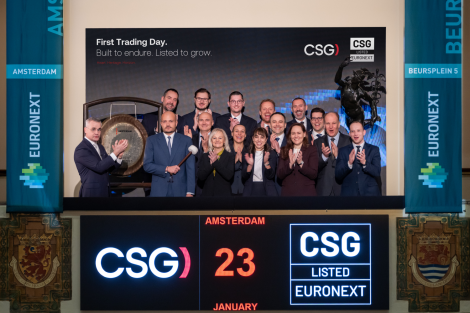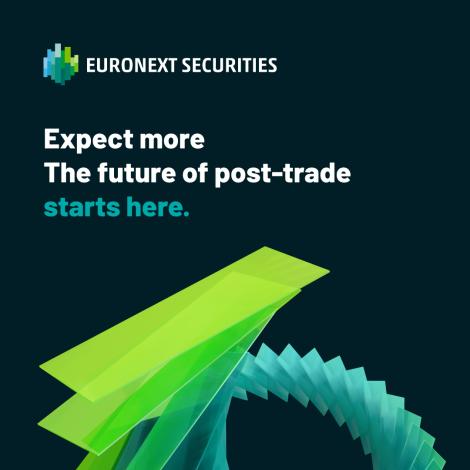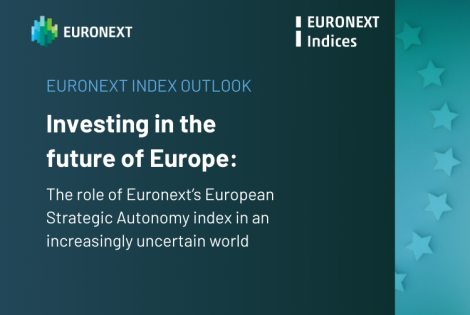What is the role of EthiFinance in the European rating ecosystem?
EthiFinance is a pioneer pan-European double materiality agency with a specific expertise in Small and Mid Caps. Established in France in 2004, EthiFinance has been analysing European SMEs, both financial and non-financial aspects, ever since.
EthiFinance has grown organically and through acquisitions, in particular the Spanish credit rating agency Axesor Ratings last year and the German ESG rating agency imug rating in March 2023. Our coverage is pan-European and will soon be extended to the biggest European corporations.
EthiFinance positions itself at the junction of two critical agendas for the EU economy:
- the Green Deal, on the one side
- the Capital Markets Union (CMU), on the other.
In effect, as President of the European Central Bank Christine Lagarde said in 2021 at a high-level conference on the launch of the Corporate Sustainability Reporting Directive (CSRD), the greening of the economy should accelerate CMU, progress towards which has not met stakeholders’ expectations thus far. From this standpoint, even if we are still small, it is not lost on us that we are an actor in European sovereignty.
At EthiFinance, our approximately 160 employees are all conscious of how high the stakes are in this context and we commit to playing our role. The clock is ticking and we plan to progress further to reach a critical mass by 2025, when CSRD kicks in.
Within the European rating ecosystem, what distinguishes us is our ability to service the SME segment efficiently and to put into operation, faithfully and in the long term, the double materiality concept that is the cornerstone of the EU’s comprehensive legislative sustainable finance regulatory framework.
Europe, with the UK and the EU in particular, is working on the regulation of ESG rating providers. We believe this is a very important and positive development, that will inject long-needed trust in the market. EthiFinance is committed to a balanced, proportionate and demanding regulation in this regard because we are aware that poor ESG rating practices can feed greenwashing, which must be checked.
We see ourselves as the nucleus, or the platform, from which a leading European rating agency will emerge. A rating agency that embraces and protects Europe’s distinctive patterns and connects individual European companies of all sizes to the global financial markets. From this standpoint, the very successful trajectory of Euronext is a great source of inspiration for us.
Is ESG performance also becoming important for SMEs? How are you supporting SMEs in this regard?
- Firstly, ESG performance is an important driver of the business resilience of any corporate. Companies that perform well at ESG are indeed better prepared to anticipate and respond to ESG-related risks and opportunities, via innovation or market positioning. They have long-term strategic thinking, making them more agile in adapting their business model. Additionally, ESG performance has also become an important asset to attract and retain talent.
- Secondly, ESG performance is increasingly becoming a key asset to attract funding, whether in debt or equity. As credit conditions tighten further, investors’ and banks’ capital will be allocated in priority to corporates that are best in class in ESG. ESG performance enables issuers to continue to attract a diverse investor base and in turn, it could even become a condition to access capital.
EthiFinance supports its clients both in structuring their ESG roadmap and leveraging on their ESG strategy to raise capital.
What could be the implications for SMEs of the upcoming ESG reporting requirements?
The requirements of the Corporate Sustainability Reporting Directive (CSRD) will help SMEs structure their CSR roadmap, boost their ESG ambitions and ensure they have identified and mitigated all relevant risks. Obviously, complying with the upcoming requirements is not a simple task and it is very important for SMEs to prepare themselves. They have a few years ahead of them to get ready, understand the requirements and start building the data. In the end, the risk of not being able to comply goes beyond financial sanctions – it is really the visibility of corporates towards investors that is at stake.
EthiFinance has developed methodologies and tools to equip its clients and help them build their CSRD roadmap as well as structure their sustainability report.
Sustainability-linked bonds have become a systematic option for corporate issuers: how can we be sure that indicators are material and targets are ambitious?
The materiality of the KPIs chosen and the level of ambition of the targets are crucial components of the credibility of Sustainability-linked instruments, and in turn of the reputation of the issuer. The International Capital Markets Association’s (ICMA) Sustainability-linked Bond Principles provide interesting and useful guidelines to frame the selection of the KPIs and calibration of the Sustainability Performance Targets (SPTs). ICMA has also built a registry of 300 potential KPIs that could be applicable to SLBs, depending on their sector.
As Second-Party Opinion (SPO) providers, our role is to challenge the issuer on the selection of its KPIs: are they relevant, core, and material to its overall business? And just as importantly, we challenge the issuer on the calibration of its targets: is the set trajectory ambitious, going beyond business as usual, and is there a robust action plan to support the ambitious targets?
EthiFinance’s expertise in this field stems from close to 20 years of CSR advisory (our consultant team for corporate is CSR-native), in-depth knowledge of sustainable finance regulation and consultancy activities for investors.







